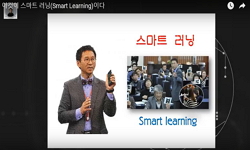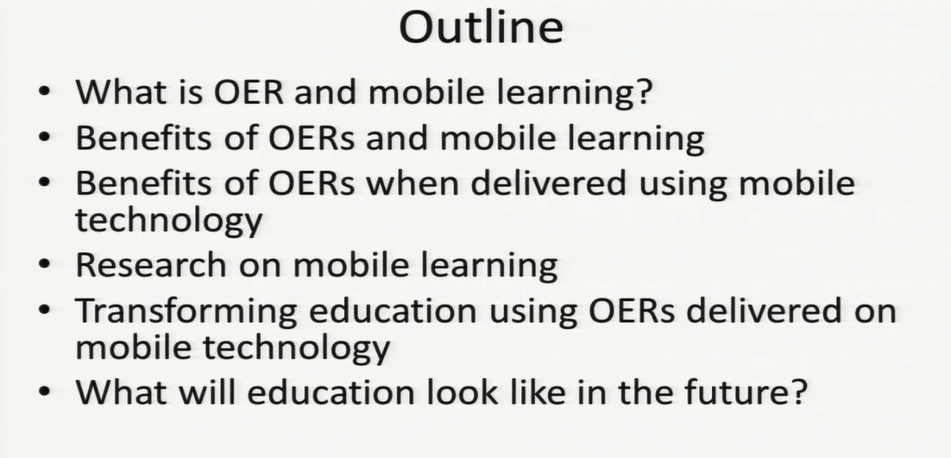With the rapid development of information technologies and the spread of the Internet in daily life within the society, diverse ways of e-learning have been explosively growing, including social learning, flipped learning, MOOCs, Smart Learning, and e...
http://chineseinput.net/에서 pinyin(병음)방식으로 중국어를 변환할 수 있습니다.
변환된 중국어를 복사하여 사용하시면 됩니다.
- 中文 을 입력하시려면 zhongwen을 입력하시고 space를누르시면됩니다.
- 北京 을 입력하시려면 beijing을 입력하시고 space를 누르시면 됩니다.
Critical Issues for Success in Open, Smart, and Social Learning Environments = Critical Issues for Success in Open, Smart, and Social Learning Environments
한글로보기https://www.riss.kr/link?id=A101964049
- 저자
- 발행기관
- 학술지명
- 권호사항
-
발행연도
2016
-
작성언어
Korean
-
주제어
Open Learning ; Smart Learning ; Social Learning ; MOOCs ; OER ; Autonomy ; Emotion ; Engagement ; Institutional Reform
-
KDC
300
-
자료형태
학술저널
-
수록면
51-52(2쪽)
- 제공처
-
0
상세조회 -
0
다운로드
부가정보
다국어 초록 (Multilingual Abstract)
With the rapid development of information technologies and the spread of the Internet in daily life within the society, diverse ways of e-learning have been explosively growing, including social learning, flipped learning, MOOCs, Smart Learning, and etc. Recently, universities have been able to extend their learning environments using technology all over their campuses. In the current and emerging learning environments where learners willingly choose to enroll but scarcely complete (e.g., MOOCs), sustaining active self-regulation is vital (e.g., in flipped classrooms, autonomy support is rarely considered in design). Four of the panelists will discuss critical issues for success in recently expanding future-oriented technology-based educational phenomena, as follows: Various forms of e-learning have been introduced and are continuously expanding to overcome the limitations of traditional classroom education. Recently, however, due to lack of interaction between learner and instructors, ``disconnection`` has been rather frequently discussed (Hawkins, Barbour, & Graham, 2012; Song et al., 2004). Social Learning may increase the possibility of ``high touch`` in education. The more learning process becomes dynamic and complicated during social learning in the SNS environment, the more the influence of learners`` emotional experiences become prominent. Learners`` experienced emotion during the e-learning process functions as the psychological foundation for changes in cognition, attitude, and behaviors; and could present the direction of learners`` behaviors (Lee, 2015; Kang et al., 2011; Kang & Ku, 2007; Lee, 2012; Cacippo & Gardner, 1999; Hou1 & Cheng, 2012; Kim & Hodges, 2012; Nummenmaa & Nummenmaa, 2008; Rowe, 2006; Vuorela & Nummenmaa, 2004; Zembylas, 2008). Autonomy is a basic human need. According to Deci and Ryan (2000), individuals have innate needs to perceive that they are in control of their decisions and actions and that their interest and needs are respected. Autonomy fosters affective benefits, such as engagement, satisfaction, and happiness. This notion expands to educational settings as perceived autonomy has shown to enhance students`` concentration, engagement, self-regulation, time-management, and performance (Deci & Ryan, 2000; Reeve et al., 2002; Jang, Reeve, & Deci, 2010; Sierens et al., 2009; Reeve et al., 2004; van Loon et al., 2012). Research has shown that students develop more emotional connections with teachers who support their autonomy (Reeve, 2006). Widespread adoption of MOOCs with utilization of OER has put a great emphasis on the notion of sharing. For the learners`` perspective, however, sharing of knowledge and experiences may be a very effective way for learning if and only if they are engaged, and actively taken part in the learning process. The term ``engage`` here is critical to the success in MOOCs, Smart Learning Environment, and Social Learning Environment. With the rapid development of information technologies and the spread of the Internet, universities have been able to extend their learning environments using technology all over their campuses. Numerous universities have developed Open Educational Resources (OER) and Massive Open Online Courses (MOOCs) for promoting open education movement, and some institutions utilize them to improve campus education (Coursera, 2013). Those universities have introduced MOOCs as "digital textbooks" with flipped classroom approach. Ghadiri et al. (2013) survey revealed that it improves the retention rate of students completing the course. To share the benefits of online learning and reduced costs, collaboration among institutions is invaluable. A consortium of institutions should be formed to collectively promote institutional and open strategies for this educational reform. Funds from governments or philanthropic foundation could propel this innovation. In order to solve educational challenges related to increasing student outcomes, use and ongoing improvement of OER and MOOCs would be of direct benefit to their faculty and students. To begin with, the panelists will discuss the role of emotional support and perceived autonomy; and how to support learner autonomy and engagement beyond sharing, and enhance their positive emotions in the open, smart, and social learning environments. Following those topics, the roles of open education in higher education and introduce advanced practices will be discussed.
동일학술지(권/호) 다른 논문
-
SF, Science Fiction? No, Social Fiction: Exploring Potential for Need Analysis
- 한국교육공학회
- ( Dahwi Lee )
- 2016
-
A Design of CSCL-based Leadership Program for the Leaders of University Student Council
- 한국교육공학회
- ( Yeji Oh )
- 2016
-
Web-based Technologies for the Flipped College Classroom
- 한국교육공학회
- ( Lucy Green )
- 2016
-
Learning 3.0 - What Must We Teach Our Learners When They Are Already Producers of Knowledge?
- 한국교육공학회
- ( Johannes Cronje )
- 2016
분석정보
연관 공개강의(KOCW)
-

Goodbye, textbooks; hello, open-source learning
TED Richard Baraniuk -

이것이 스마트 러닝 (Smart Learning)이다
신한대학교 신종우 -

2014 이러닝 국제 콘퍼런스 : Open Education Resources with Mobile Learning to Transform Education
한국교육학술정보원 Mohamed Ally -

xD19 Emotion + Function(感性 + 機能)
홍익대학교 쿠니히사 이토(kunihisa Ito), 이근(Lee Keun) -

Autonomy, Choice and Competition
Teachers TV Teachers TV




 KISS
KISS

